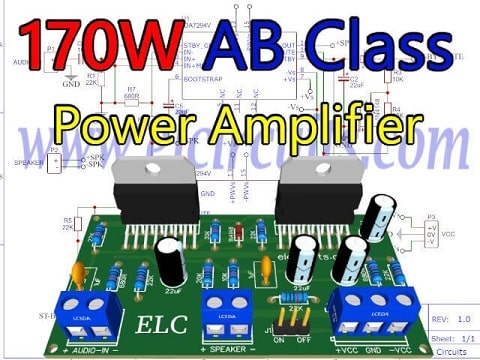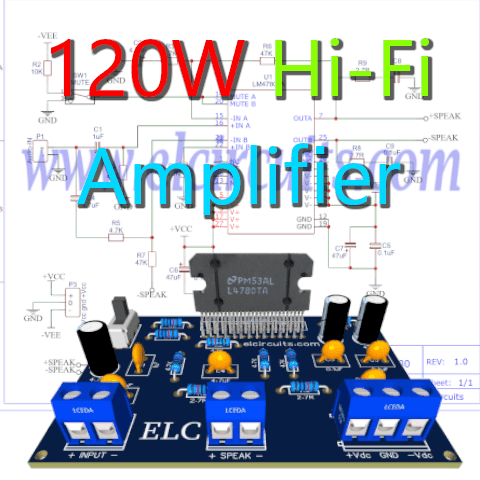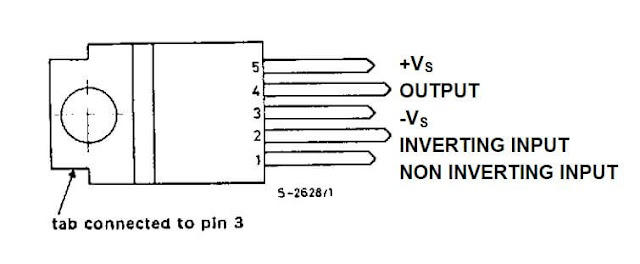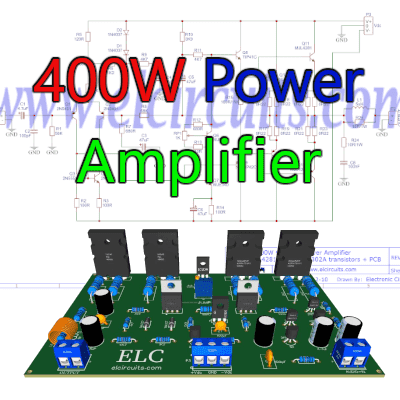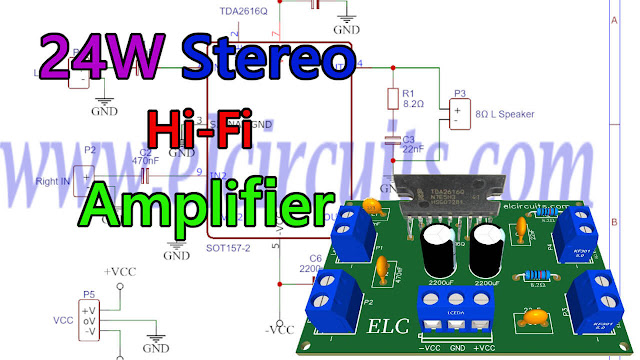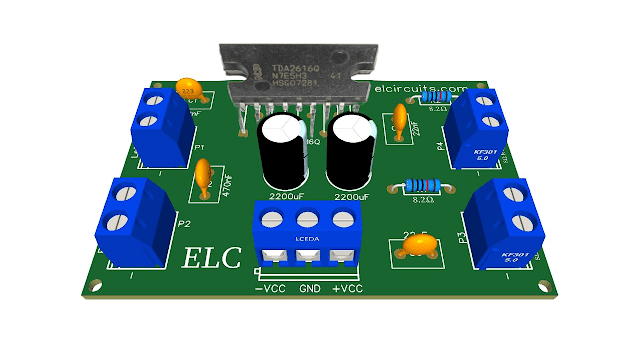 |
| Fig. 1 - 14.4V, 70W High Efficiency Power Amplifier using TDA1562Q IC + PCB |
The device can be used for general-purpose audio systems, however, given its low operating voltage, between 8V and 18V.
We can use it in: Car Sound, Subwoofer Boxes, as well as applications powered by a DC power supply connected to the mains, such as: speaker system, guitar amplifier, TV Sound, or in portable audio like Boombox, Etc.
Features
- Very high output power, operating from a single low supply voltage
- Low power dissipation, when used for music signals
- Switches to low output power at too high case temperatures
- Few external components
- Fixed gain
- Differential inputs with high common mode rejection
- Mode select pin (on, mute and standby)
- Status I/O pin (class-H, class-B and fast mute)
- All switching levels with hysteresis
- Diagnostic pin with information about:– Dynamic Distortion Detector (DDD)– Any short-circuit at outputs– Open load detector– Temperature protection.
- No switch-on or switch-off plops
You might also be interested in:
- 24W Stereo Hi-Fi Audio Amplifier using TDA2616 + PCB
- 68W Hi-Fi Audio Power Amplifier using LM3886T IC + PCB
- 4 x 50W High Power Amplifier, 14.4V - IC TDA7563A + PCB
- 320W Power Audio Amplifier, Powered with 14.4V - 2Ω with IC TDA7560 + PCB
- 100W RMS Audio Amplifier IC TDA7294 + PCB
- 200W RMS Stereo Power Amplifier with IC STK4231II + PCB
The Schematic
 |
| Fig. 2 - Schematic 14.4V, 70W High Efficiency Power Amplifier using TDA1562Q IC |
Power Supply
Component List
- Semiconductors
- CI1 ............ TDA1562Q Integrated Circuit
- LD1 ........... LED Light Emitting Diode
- Resistors
- R1 .............. 1MΩ resistor (brown, black, green, gold)
- R2 .............. 10KΩ resistor (brown, black, orange, gold)
- R3 .............. 5.6KΩ resistor (green, blue, orange, gold)
- Capacitors
- C1, C2 ....... 470nF Ceramic / Polyester Capacitor
- C3 .............. 10uF / 63v Electrolytic Capacitor
- C4, C5 ....... 4700uF / 25V Electrolytic Capacitor
- C6 .............. 100nF Ceramic / Polyester Capacitor
- C7 .............. 2.200uF / 25V Electrolytic Capacitor
- Others
- P1, P2, P3 ... Screw Terminal Type 5mm 2-Pin Connector
- Others ......... Heat sink for IC, wires, connectors, PCB, tin etc.
Printed Circuit Board
In Figure 3, we provide the PCB - Printed Circuit Board, in GERBER, PDF and PNG files. These files are available for free download, on the MEGA server, in a direct link, without any bypass.
All to make it easier for you to do a more optimized assembly, either at home, or with a company that prints the board. You can download the files in the Download option below.
 |
| Fig. 3 - PCB 14.4V, 70W High Efficiency Power Amplifier using TDA1562Q IC |
Files to Download, Direct Link:
If you have any questions, suggestions or corrections, please leave them in the comments and we will answer them soon.
Subscribe to our blog!!! Click Here - elcircuits.com!!!
My Best Regards!!!

